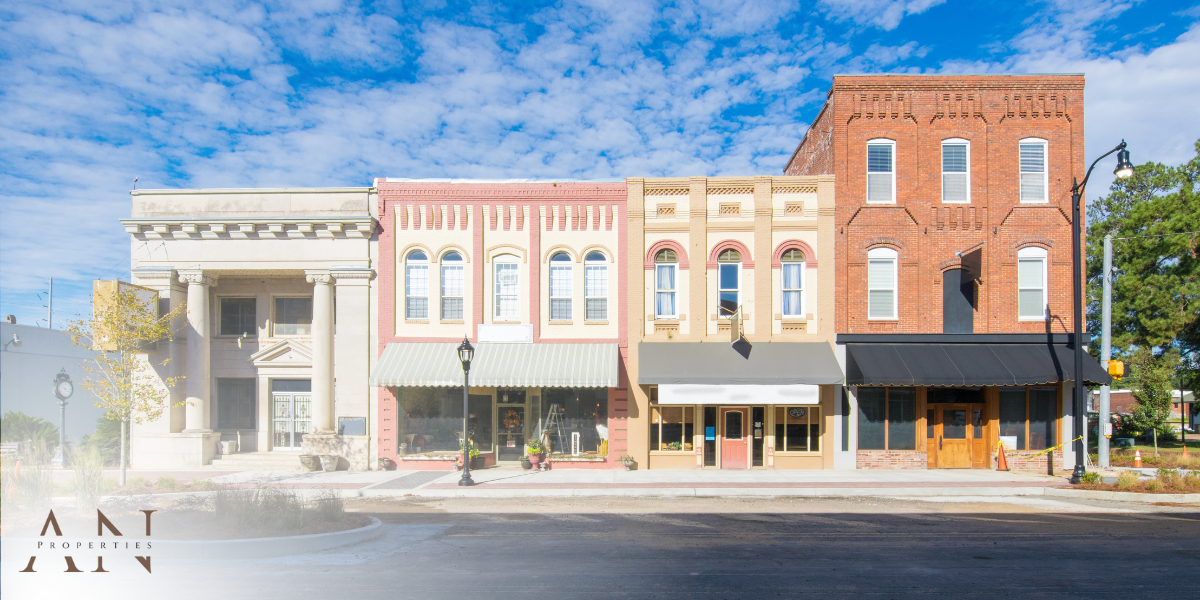
Understanding Commercial Real Estate Financing
- Commercial real estate financing refers to the methods and structures used to fund the acquisition, development, or improvement of commercial properties. Unlike residential real estate, commercial properties are typically more expensive, and the financing options are more varied and complex.
In Saskatchewan, the commercial real estate market includes properties such as office buildings, retail spaces, warehouses, and multifamily residential units (apartments). Securing financing for these types of properties can involve multiple parties, stringent lending criteria, and creative funding solutions.
To successfully secure financing for a commercial property, it’s essential to understand the different types of funding available, the qualifications needed, and the risks involved.
1. Traditional Commercial Real Estate Loans
The most common method of financing commercial real estate is through traditional loans, often provided by banks or credit unions. These loans are structured similarly to residential mortgages, but the approval process is more complex, and the terms are often stricter.
Term Loans
A term loan is a traditional type of financing where the borrower receives a lump sum upfront and repays it over a fixed period, typically 5 to 25 years. Interest rates can be either fixed or variable, and the loan is often secured by the property being purchased.
- Loan Amount: The loan amount typically covers 70% to 80% of the property’s value, meaning the investor will need to provide a significant down payment (20% to 30%).
- Eligibility: Lenders typically require a strong credit history, a solid business plan, and proof of the property’s potential for generating income.
- Repayment: Payments are usually made monthly, including both principal and interest.
Commercial Mortgages
Similar to residential mortgages, commercial mortgages are secured by the property itself. They are available through banks, credit unions, and specialized commercial mortgage lenders.
- Interest Rates: Commercial mortgages often have higher interest rates compared to residential mortgages due to the higher risk involved.
- Loan Terms: Most commercial mortgages have shorter loan terms, typically ranging from 5 to 10 years, with amortization periods of up to 25 years.
- Balloon Payments: Many commercial mortgages include balloon payments, where the remaining loan balance is due at the end of the term. This requires refinancing or paying off the balance in full.
2. Government Grants and Incentives
In Saskatchewan, as well as other provinces in Canada, there are government programs and grants available to support commercial real estate development. These programs can provide partial funding or incentives for specific types of projects, particularly those that align with public policy goals such as energy efficiency or community development.
Canada Small Business Financing Program (CSBFP)
The Canada Small Business Financing Program offers government-backed loans to help small businesses acquire or improve commercial properties. While this program is not limited to real estate, it can be used to finance the purchase of land or buildings for commercial use.
- Loan Amount: Up to $1 million, of which a maximum of $350,000 can be used for leasehold improvements or equipment purchases.
- Eligibility: The program is designed for small businesses with gross annual revenues of $10 million or less.
- Advantages: Government-backed loans often have more favorable terms and lower interest rates than traditional loans.
Energy Efficiency Grants
In Saskatchewan, there are various incentives available for commercial property owners who invest in energy-efficient upgrades. These grants and rebates are designed to reduce the environmental impact of commercial buildings and can provide partial funding for projects such as:
- Installing solar panels
- Upgrading HVAC systems
- Improving insulation
Energy efficiency grants not only help offset the cost of these improvements but can also increase the property’s value and reduce operating costs, making them an attractive option for investors.
3. Private Funding and Equity Investment
For investors who do not qualify for traditional bank loans or government grants, private funding options may provide the necessary capital. Private investors, venture capitalists, or real estate investment firms are often willing to fund commercial real estate projects, particularly those with high growth potential.
Private Commercial Loans
Private commercial loans are often provided by individuals or companies rather than banks. These loans typically have more flexible terms but come with higher interest rates due to the increased risk.
- Advantages: Private lenders may be more willing to finance risky or unconventional projects that traditional banks would decline.
- Risks: Higher interest rates and shorter loan terms can lead to higher costs over time.
Joint Ventures and Equity Partnerships
In a joint venture or equity partnership, two or more parties come together to pool their resources and share the profits from a commercial real estate project. This arrangement allows investors to access more significant projects than they could afford individually and share the risks and rewards.
- Structure: One party typically provides the capital (equity partner), while the other manages the project (operating partner).
- Profit Sharing: Profits are distributed according to the agreement, which often includes a preferred return for the equity partner and a share of the remaining profits for the operating partner.
- Flexibility: Joint ventures can be structured to suit the specific needs of the project, offering flexibility in terms of investment size and duration.
Real Estate Investment Trusts (REITs)
Another option for investors looking to gain exposure to commercial real estate without purchasing property directly is through Real Estate Investment Trusts (REITs). REITs are companies that own, operate, or finance income-producing real estate and allow investors to buy shares in the trust.
- Liquidity: Unlike traditional real estate investments, REITs offer liquidity since shares can be bought and sold on the stock exchange.
- Diversification: REITs provide diversification as they often hold a portfolio of commercial properties across different sectors, such as office spaces, retail centers, and industrial properties.
- Returns: Investors earn returns through dividends, which are typically paid out from the rental income generated by the properties.
4. Construction Financing for Commercial Development
For developers looking to build new commercial properties or undertake major renovations, construction loans can provide the necessary funding. These loans are typically short-term and are used to cover the costs of construction until the project is completed and the property can be refinanced or sold.
Construction Loans
Construction loans are specifically designed for real estate development projects. They are typically disbursed in stages as construction milestones are reached, ensuring that the funds are used efficiently.
- Short-Term: Most construction loans have a term of 12 to 36 months.
- Interest Rates: These loans often come with variable interest rates, making it essential to account for potential rate fluctuations.
- Exit Strategy: At the end of the construction phase, the loan must be paid off. Investors usually refinance the property or sell it to repay the loan.
Securing the right financing is a critical step in any commercial real estate investment. Whether you opt for a traditional loan, government grant, or private funding, it’s essential to understand the options available and align them with your investment goals.
Saskatchewan’s growing commercial real estate market offers numerous opportunities for investors, but success hinges on finding the right financing solution. By carefully evaluating your options and seeking professional advice, you can make informed decisions that set your investment up for long-term success.
At AN Properties, we specialize in helping investors navigate the complexities of commercial real estate financing in Saskatchewan. Whether you’re seeking a traditional loan, government grant, or private funding, we have the expertise to guide you through the process. Contact us here to explore your options and start your investment journey today.
Take the First Step to Homeownership
Ready to buy a home? Our Free Buyers Guide is your essential companion. Download now for expert advice and a smooth, stress-free home buying experience.
Get Your Free Guide Now!
Ready to Sell?
Start Here!
Our Free Sellers Guide provides you with the knowledge and tools to prepare your home for sale, attract buyers, and maximize your return.
Get Your Free Guide Now!
Curious about the current value of your home?
Reach out to get your Current Market Analysis
Compare listings
ComparePlease enter your username or email address. You will receive a link to create a new password via email.

Curious about the current value of your home?
Reach out to get your Current Market Analysis
Curious about the current value of your home?
Reach out to get your Current Market Analysis

